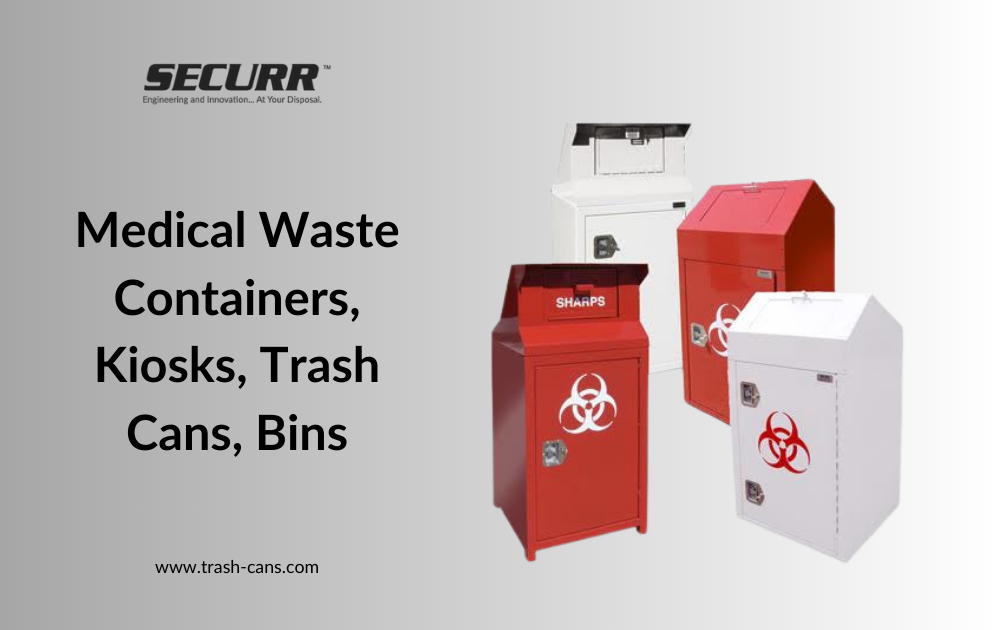The Vital Role of Medical Waste Management in Healthcare Facilities
Posted by Securr Blogger on
In the intricate ecosystem of healthcare facilities, where every action impacts patient care, one often overlooked aspect plays a critical role: medical waste management. Proper management of medical waste is not just a regulatory obligation; it's a fundamental aspect of ensuring public health and safety within and beyond the confines of healthcare facilities. From hospitals to clinics, laboratories to nursing homes, the importance of an efficient and comprehensive medical waste management system cannot be overstated.
Protecting Public Health
Medical waste, which includes potentially infectious materials like blood, bodily fluids, and sharp objects, poses serious health risks if not managed appropriately. Improper disposal can lead to the spread of infectious diseases, environmental contamination, and harm to both healthcare workers and the general public. By implementing stringent waste management protocols, healthcare facilities safeguard public health and minimize the risk of disease transmission.
Compliance with Regulations
Regulatory bodies at local, state, and federal levels enforce strict guidelines for the handling, storage, transportation, and disposal of medical waste. Compliance with these regulations is not just a legal requirement but a moral imperative. Healthcare facilities must adhere to standards such as those outlined by the Occupational Safety and Health Administration (OSHA), the Environmental Protection Agency (EPA), and the Department of Transportation (DOT) to ensure safe and responsible management of medical waste.
Environmental Stewardship
Beyond the immediate health implications, effective medical waste management is crucial for environmental sustainability. Improperly disposed medical waste can contaminate soil, water bodies, and air, posing long-term ecological hazards. By implementing environmentally responsible disposal methods such as sterilization, incineration, or landfilling in accordance with regulatory guidelines, healthcare facilities minimize their environmental footprint and contribute to a healthier planet.
Preventing Workplace Accidents
Healthcare workers face numerous occupational hazards, and improper management of medical waste only exacerbates these risks. Accidental needlesticks, exposure to infectious materials, and slips and falls due to improperly stored waste can result in injuries or illnesses among staff members. A robust waste management system, including proper labeling, segregation, and disposal procedures, mitigates these risks and fosters a safer work environment for healthcare professionals.
Community Engagement and Education
Effective medical waste management extends beyond the walls of healthcare facilities. Engaging with the community and educating the public about proper disposal practices is essential for preventing contamination and promoting public health awareness. Healthcare facilities can collaborate with local authorities, schools, and community organizations to organize educational campaigns, distribute informational materials, and establish safe disposal sites for residents.
The Role of Innovative Solutions
As healthcare practices evolve, so too must waste management technologies and strategies. Innovative solutions such as autoclaving, chemical treatment, and waste-to-energy processes offer efficient and environmentally sustainable alternatives to traditional disposal methods. Additionally, advancements in waste tracking systems and digital documentation streamline compliance efforts and enhance transparency throughout the waste management process.
Conclusion
Medical waste management is not merely a logistical challenge; it's a fundamental aspect of healthcare delivery that impacts public health, environmental sustainability, and workplace safety. Healthcare facilities must prioritize the implementation of comprehensive waste management systems that comply with regulations, minimize environmental impact, and protect the well-being of patients, staff, and the community at large. By embracing innovation, education, and collaboration, we can ensure that medical waste is managed responsibly, safeguarding both current and future generations.
For inquiries about medical waste management solutions, please contact us at 888-671-7066 or email sales@securr.com.

